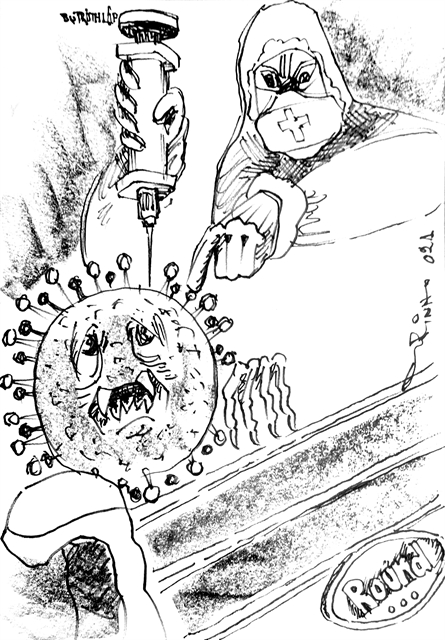 Talk Around Town
Talk Around Town

This week Hà Nội saw its number of coronavirus patients on the rise, passing three digits to reach above 200 on Tuesday. Hồ Chí Minh City's Hóc Môn District saw new patients rise above 1,000.

|
by Nguyễn Mỹ Hà
This week Hà Nội saw its number of coronavirus patients on the rise, passing three digits to reach above 200 on Tuesday. Hồ Chí Minh City's Hóc Môn District saw new patients rise above 1,000.
The daily national patient record number has steadily risen from the lowest level of the fourth wave in April of just above 3,000 to above 8,000 on November 9.
If you look at the country chart of total cases from the beginning of the pandemic, you'll start to see an upward trend, rising sharply from October 19.
Is there anything we can do to slow down the infection rate and gain some sort of control over the number of infections so that our medical staff and hospital facilities can keep pace with treating new cases?
If people believe in herd immunity and feel they can freely roam the streets and other public spaces, then they should think again. People with two vaccine shots, if infected, may show no symptoms but easily spread the virus without even knowing it.
If this is the beginning of yet another wave, then it came sooner than the experts warned earlier, of a more destructive wave of infection toward year-end.
If the spread of the virus is inevitable, then it's a change in people's attitudes we need to be aware of.
In early summer, when Bắc Ninh and Bắc Giang topped the news with up to 600 cases every day, people were concerned. They wanted a lockdown to stop the spread. They cheered on volunteer medical teams who were heading to the provinces to help.
Toward the end of the outbreak, Bắc Giang was the only success story; it had managed to end the wave of positive cases and even sold out its ripe litchi harvest.
What happened in HCM City during the following three months to mid-September was not so positive.
When the municipal authorities lifted their lockdown allowing people stuck in the city to go home to different provinces, they also brought the virus with them, spreading to new areas.
The public sentiment that is now popular is that if we cannot control the spread of the virus, we must learn to live with it.
The problem here is that even if you want to live with the virus, it won't let you.
No sooner had we let loose, and Hà Nội saw a record high on November 9 with more than 200 new cases, of which 105 were community cases.
A few days earlier, Hanoians were seen taking the new city skytrain, as the first people to get a ride in the much-anticipated and troubled first-leg of the city’s new urban train network. During this time, it was still forbidden to gather in public with more than 20 people, and whoever allowed a large group of people to try the new train should take full responsibility for such a reckless action.
Public transport needs to be at service for city residents on their daily travel, not a wonder for people to marvel at like some newfangled tourist attraction.
"My son's teacher just announced a dreadful statement,” said a parent with a child in primary school this week. “We may need to study online for the rest of this school year."
School children of 18 suburban districts have just returned to school after a several-month-long lockdown. Now, parents are concerned about them going back to school without any vaccinations.
Vaccinations for children from 12-18 years old still draw controversies, with many parents not wanting their children vaccinated. Some schoolchildren in Hà Nội have been asked to register for vaccinations.
Teachers sent out lists for parents to register for their children to get shots, but there are no fixed dates for the shots to be taken or information on what vaccine they will receive. Parents are perplexed over the possible long-term consequences of the vaccine.
Recently, the country's number of new coronavirus patients rose by a thousand each day. Over the past two weeks, it has more than doubled from the lowest rate since the April wave.
Now is the time to be more vigilant than ever. Do not drop your personal mode of defence: wear your mask, wash your hands regularly, and do not frequent crowded spaces.
In the end, you are the only one who can act responsibly to protect yourself and your loved ones. Stay safe, stay healthy, and one day this pandemic will leave us all alone. VNS